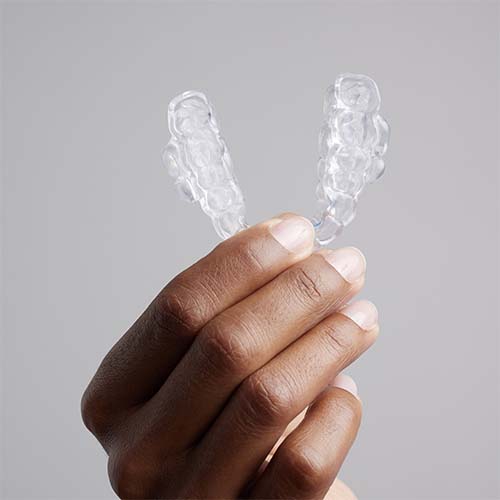Sleep Apnea 101
Reasons for Nocturia (Frequent Nighttime Urination)
Many of us have experienced the disruptive urge to urinate during the night, interrupting our precious hours of rest. Nocturia can be more than just an occasional annoyance; it might signal underlying health issues or lifestyle factors that warrant attention. Knowing the reasons behind your nocturia can help determine the best course of treatment so you can better sleep through the night.
What Is Nocturia?
Nocturia is a condition where a person wakes up during the night to urinate. It can be caused by various factors such as excessive fluid intake, urinary tract infections, or underlying medical conditions like diabetes or an enlarged prostate. If you’re experiencing frequent nighttime urination, it’s a good idea to consult with a healthcare professional to determine the underlying cause and appropriate treatment.
What Causes Nocturia?
Nocturia can be caused by a variety of factors. Some common reasons include:
- Excessive Fluid Intake: Consuming large amounts of fluids, especially close to bedtime, can lead to increased urine production and nocturia.
- Aging: As people age, the bladder’s capacity to hold urine may decrease, leading to more frequent urination, including during the night.
- Sleep Disorders: Conditions such as sleep apnea can disrupt sleep and contribute to nocturia.
- Urinary Tract Infection (UTI): Infections in the urinary tract can cause irritation and increased urgency to urinate, including at night.
- Enlarged Prostate: In men, an enlarged prostate can obstruct the urethra, causing difficulty in emptying the bladder fully and leading to more frequent urination, especially at night.
- Diabetes: Uncontrolled diabetes can result in increased urine production, leading to nocturia.
- Diuretic Medications: Certain medications, like diuretics, increase urine production and may contribute to nocturia.
- Overactive Bladder: Conditions where the bladder muscles contract involuntarily can cause frequent and urgent urination, including during the night.
How Can Sleep Apnea Cause Nocturia?
Sleep apnea, a condition characterized by interruptions in breathing during sleep, can contribute to nocturia through several interconnected mechanisms. The relationship between sleep apnea and nocturia involves the following factors:
- Increased Production of Atrial Natriuretic Peptide (ANP): Sleep apnea often leads to brief awakenings during the night, disrupting the sleep cycle. These awakenings can trigger the release of atrial natriuretic peptide (ANP), a hormone that promotes urine production.
- Activation of the Sympathetic Nervous System: Sleep apnea can activate the sympathetic nervous system, leading to increased production of urine. This activation may be a response to the body’s stress from repeated interruptions in breathing.
- Fluid Redistribution: Changes in blood oxygen levels and increased sympathetic activity can affect fluid balance in the body. This fluid redistribution can result in increased urine production, contributing to nocturia.
- Impaired Production of Antidiuretic Hormone (ADH): Sleep apnea may affect the secretion of antidiuretic hormone (ADH), which plays a crucial role in regulating water balance. Reduced ADH levels can lead to increased urine output.
- Obesity-Related Factors: Obesity is a common risk factor for both sleep apnea and nocturia. Excess weight can contribute to the development of sleep apnea and may also exacerbate bladder issues, leading to increased nighttime urination.
Addressing sleep apnea through treatments such as oral appliance therapy or lifestyle changes may help improve sleep quality and reduce the associated effects on nocturia. Consulting with a healthcare professional is essential for a comprehensive evaluation and tailored treatment plan based on individual health circumstances.
How To Treat Nocturia
The treatment of nocturia depends on its underlying cause, and addressing the specific factor contributing to the condition is key. It’s crucial to consult with a healthcare professional to determine the specific cause of your nocturia and create an individualized treatment plan. They can provide targeted interventions based on your unique health situation.
#1: Wear an Oral Appliance
Wearing an oral appliance that is similar to a retainer at night can help to prevent the tongue from falling back into the throat and interrupt breathing, which is a cause of sleep apnea. The oral appliance is an alternative treatment to CPAP or other large, loud machines that may be inconvenient to use.

#2: Limit Fluid Intake Before Bed
Reduce the consumption of liquids, especially caffeinated and alcoholic beverages, in the hours leading up to bedtime to minimize nighttime urination.
#3: Address Underlying Health Conditions
If conditions such as diabetes, urinary tract infections, or an enlarged prostate are contributing to nocturia, treating these underlying issues can help alleviate the symptoms.
#4: Manage Your Medications
If medications contribute to increased urine production or affect bladder function, discuss potential alternatives or adjustment of dosage with your healthcare provider.
#5: Pelvic Floor Exercises
For some individuals, especially women, pelvic floor exercises (Kegel exercises) may improve bladder control and reduce nocturia episodes.
#6: Elevate Legs During the Day
If leg swelling contributes to fluid retention and increased urine production at night, elevating your legs during the day may help.
#7: Maintain a Regular Sleep Schedule
Establishing a consistent sleep routine can contribute to overall better sleep quality, potentially reducing the disruptions caused by nocturia.
#8: Limit Caffeine and Alcohol Intake
Both caffeine and alcohol can have diuretic effects, increasing urine production. Limiting their intake, especially in the evening, may help reduce nocturnal bathroom visits.
#9: Weight Management
For individuals with obesity, losing weight may help alleviate pressure on the bladder and improve nocturia symptoms.
Do You Have Obstructive Sleep Apnea?
Contact us for an alternative treatment to CPAP machines.
Contact us
Call us
Location
1700 Eagle Harbor Pkwy, Suite 7
Fleming Island, FL 32003
Hours
Monday 9am- 4pm
Tuesday 9am- 4pm
Wednesday 10am - 5pm
Thursday 9am- 4pm
Friday By Appointment
Saturday Closed
Sunday Closed